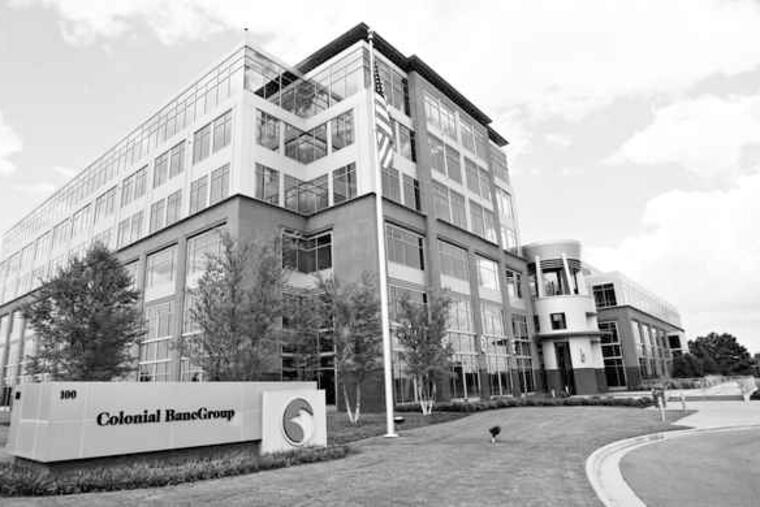PhillyDeals: Fannie and Freddie woes trump banking debacle
Federal banking agents will be out again late this afternoon, walking into the nation's most troubled banks and taking them over, if today is like most recent Fridays.

Federal banking agents will be out again late this afternoon, walking into the nation's most troubled banks and taking them over, if today is like most recent Fridays.
The government likes Fridays because it gives staff the weekend to reorganize the bank so customers can get to their money when it reopens for business. It has seized an average of four banks each Friday since the end of June, up from one every other week last year, and none in 2005-06.
No bank around Philadelphia has failed in this cycle. A lot of the doomed lenders were near Atlanta and other centers of reckless optimism. More than 80 banks have closed to date in 2009.
Should we get worried, or angry? Are taxpayers going to get robbed again?
Nope, it's what banks do, every so often, and banks are taking care of the problem, said William Isaac, who headed the Federal Deposit Insurance Corp. under President Ronald Reagan during the run-up to the last big round of bank blowups.
"I don't see a whole lot of diffence between the bank failure occurring this time and last time," Isaac told me earlier this week.
"Banks get too aggressive in lending, and now they're in substantially weakened condition, and it's time to clean it up. We'll be doing that for the next couple of years," he said from his Florida home, where he rested between calling on bank executives around the country as chairman of LECG Corp.'s financial-services business.
LECG is the national consulting firm that last month agreed to buy the largest Philadelphia-area-based accounting firm, Smart Business Advisory & Consulting L.L.C., of Devon.
Richard X. Bove, a bank analyst for Rochdale Securities L.L.C., estimates that maybe 150 to 200 more banks will fail this cycle. Isaac calls that "reasonable," though he notes that only the FDIC really has a good idea, and it keeps the truth hidden, under federal bank-secrecy laws, until a company is actually taken over.
Won't FDIC run out of cash at this rate? "Not yet," Isaac said, citing the FDIC's fund balance (about $10 billion) plus billions more in accrued insurance payments that Isaac said the agency had set aside to cover future losses.
If FDIC does run low, Isaacs said, it ought to borrow from Treasury, instead of increasing insurance charges on banks, as it did last year.
"Congress does not want the FDIC to be raising premiums at a time we're trying to get banks lending again," Isaac said. "Every dollar the banks put in the FDIC is $10 they don't lend," since banks typically keep about $1 in reserves for every $10 they lend out, and insurance premiums come out of those reserves.
Banks - not taxpayers - finance FDIC. Though banks do pass the cost along to the public, like other expenses, as higher fees or lower shareholder profits.
The real problem
"
Fannie Mae
and
Freddie Mac
are much more serious problems," with tens or hundreds of billions in as-yet-undeclared losses on bad mortgage loans, Isaac added.
The government's alternatives, since it effectively took over Fannie and Freddie last year: "Keep them as wards of the state forever," Isaac urged. "Or truly privatize them - break them down into much smaller pieces and sell them off. There's no way the private sector can deal with something that large."
How'd we get to this point? "Everybody believed [Fannie and Freddie] had the government's backing" when they financed increasingly questionable loans in the 1990s and early 2000s, Isaac said. "They weren't subject to enough discipline."
Public-private inflation
The Fannie-Freddie debacle is just the latest example of how public support for private enterprise seems to lead to some of the worst economic outcomes.
As with health care and college tuition, home loans have been financed in part by taxpayers (through implicit guarantees for Fannie and Freddie debt), but actually spent by private institutions.
When the people approving and receiving government-backed payments aren't the people raising the cash (or making the guarantees), institutions like hospitals, drugmakers, and colleges start getting used to the extra cash, and boosting costs.
That is also what happened in the home real-estate business, until it blew up in the mid-2000s.